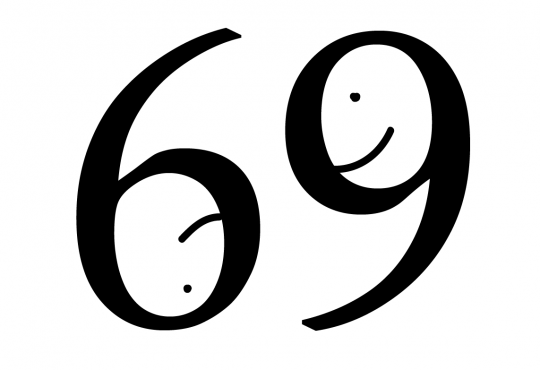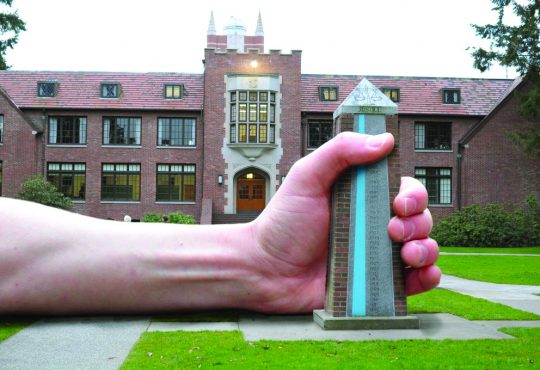By MIDGE SQUEALSTROM
In association with any failed romantic endeavor, chances are most young folk are perceived as belonging to at least one of the following categories: There is the naïve idealist, who makes a concerted effort to remain friends after the initial interest or passion in the relationship disintegrates; the “asshole,” who abruptly calls it quits without fully articulating why or attempting to work things out; the “traitor,” who leaves one relationship in pursuit of another; and the person (or persons) that cries wolf, who quits and then returns to the relationship repeatedly.
These generally negative stigmas serve only to obscure or avoid the true motives, intent and circumstance of those that bear them. Unfortunately, this hinders understanding and renders one or both parties more confused, hurt or angry than is necessary.
Not all relationships have to end badly, and not all of them do. No one desires an ugly outcome or the relative stigmas that come with it. So why are they so prevalent? The only explanation is that people don’t know how to go about it in the best way. They get defensive or they manipulate their arguments to minimize hurt feelings or maximize the chances of saving the relationship. Regardless, people will try to paint themselves in the best light in order to avoid being stigmatized, when the only way to avoid stigmatization is clarity.
There is one romantic relationship that I credit for pretty much all of my interpersonal philosophy. It bloomed from a close friendship, but was passionate and exhilarating for almost all of its duration. For me, in the end, heartbreak was unavoidable. I planned on making every effort to maintain our friendship, which was like a layer underneath the intense attraction. Like many naïve “idealists,” I thought I could keep that piece and preserve our bond.
The time came when I knew we were going to break up, and I knew the boy well enough to know exactly why—so I understood. We were lying on my bed, barely awake, when I calmly asked him if he wanted to be “best friends.” His eyes widened—he’d expected me to be a complete, inconsolable wreck at the prospect of us breaking up. I was, later, but my initial effort to be understanding and composed impressed him enough that he entertained my later efforts to stay close. We broke up three years ago as juniors in high school trying to do long distance. Today he is still one of my best friends, and I truly don’t desire anything more than that. He’s been living comfortably in my house for a month now.
This experience taught me the importance of clear communication both during and after the relationship. Staying friends is possible when neither party bears ill will, and when both understand each other. However, sometimes the naïve idealist is actually the person that ends the relationship. The other person may feel less inclined to stay friends, which can be confusing: “Wait, I thought you wanted me in your life—you wanted to stay together!”
The thing is, getting dumped hurts, and it can feel like a punch in the stomach to watch the object of your attraction happily move on without you. The best thing to do in this situation is wait to rekindle the friendship—or, if there is no friendship to fall back on, simply move on. Understand that the other person might just not conceptualize you as a friend, and that can’t be helped.
To avoid the “asshole” label, communication is key. There are reasons that the relationship is ending—be upfront about them. If they weren’t understandable, they wouldn’t affect the decision, and your partner will likely not be satisfied with an edited excuse, demanding more explanation. Give it. The stigma typically highlights inconsideration on the part of the “asshole,” who left the other to grasp at straws. On the flip side, if dealing with a perceived “asshole,” consider that there may be more to the story than what has been told, and that it likely makes their actions completely reasonable. Some people just try to cut things off cleanly and quickly in order to avoid hurting the other person or themselves more than necessary.
As for the “traitor” label (likely the most notorious), the motives are pretty obvious: the “traitor” in question is into someone else. To their (former) partner, whether the relationship is or was romantic or purely sexual, serious or casual, I have only this to say: there is no better choice than to try to get over it. The matter is out of your control, and, in fact, completely out of the “traitor’s” control. People can’t help who they like, when they like them, or how long they like them for.
If you find yourself in the “traitor’s” position, however, there is one thing that can be controlled: the amount of consideration aimed at your partner. Jealously is a horrible feeling that is difficult to repress. If you go out of your way to apologize, to explain yourself and to minimize the amount of jealousy that your partner will feel, it will be clear to your partner that you have considered their needs and have good intentions. Do not lead one person on so that you might have something to fall back on, as it will be then be assumed that your intentions were selfish and inconsiderate, rendering you an “asshole.”
Last but not least are those tormented lovers that cry wolf, ending up together again and again though it never seems to work out. If you have honestly tried but the relationship is not going well—and never has—it’d probably be a better use of energy to take some time off to reflect, or pursue something more compatible. The emotional stress that comes from the rollercoaster nature of this type of relationship is both physically and mentally unhealthy for both parties.
People act rationally in terms of their own self-interest, but it is important to consider the interests of others in romantic and sexual relationships all the way to the bitter end—it’s kind of the point. Clear communication and mutual understanding will make every situation like this more manageable and less painful, and reduce the chances of misattributed stigmatization that will only further distance us from reality and leave us unequipped to handle it.






